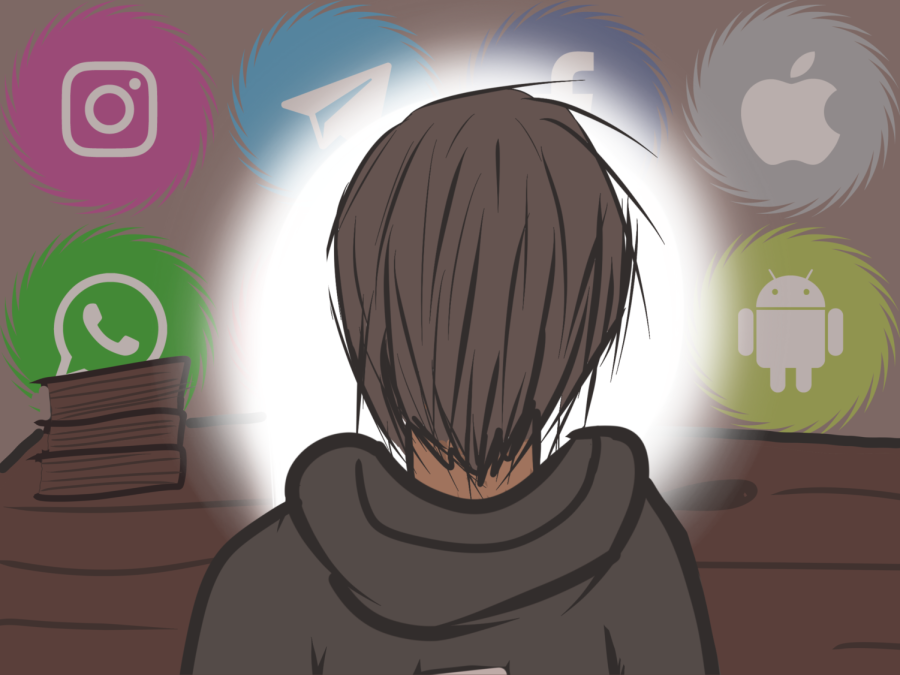Technology vs. Mental and Physical Health: Who Will Win?
The vast variety of available social media for students.
November 4, 2022
Technology has become synonymous with our lives. Many of us don’t know a life without our devices. We have also heard this same phrase emphasized by parents and teachers: “Put away your cell phone,” or perhaps variants like, “Stop texting,” “Get off of Instagram,” “Get off Snapchat,” “Get off your phone.” Moreover, as the number of anti-phone studies increase and more content is advertising less screen time, perhaps teens should seriously consider if there is some harm with spending hours in front of a digital device.
Most students, not just in Edison High, grew up not knowing a world without devices. The Pew Research Center reported that 95% of teenagers have a phone, and 45% are online constantly. Furthermore, this increased screen time is often accompanied with negative mental health results stemming from attention and cyberbullying and overuse. These effects manifest as physical health detriments like lack of exercise and eye strain.
EHS students have spoken to both support and disavow the technology usage of the current generation. For some, it is the stress that deters them from these devices, and for others its social media, especially since the pandemic when the bulk of their lives transitioned online.
“Because of the pandemic, I would say my technology usage definitely went up,” said Muganim Burki ’25. “During the pandemic [you] can’t really get out and do much. All I have to do is just get on Netflix or video games and just do that for a long time because you can’t get out.”
Student’s acknowledge this detriment to health and make an effort to stay off of their devices. However, due to school work, many students find it hard to disconnect. This circumstance is even worse after the pandemic, where many are tired of being online constantly.
“I feel like we’re more used to being on the computer; however, we don’t want to be on the computer as much after Covid, which has glued us to the screens. We want to get off of it,” said Agastya Chinchankar ‘26.
“[Technology] has probably not affected my mental health very well since I’m constantly on it,’ said Brynn Connover 25′. “It’s probably better if I got off of it a lot more. I think I kind of overuse [Technology]. [Technology] is probably affecting me poorly.”
Research by the Sleep Health Foundation shows that use of electronic devices results in nearly an hour’s loss of sleep in kids between the ages 6 and 17. This lack of sleep can cause major health concerns such as lack of focus and greater feelings of anxiety and stress.
“Before I would always try to get 9 [hours of sleep], now that’s kind of gone out the window,” Chincankar added.
Of course, there are also students who have seen their lives improve as technology grows more and more prevalent.
“I think I’m more productive since I can type faster than I can write,” said Dorien Byrne 23′. Byrne, as a senior, also notes this benefit in writing for college applications, a very stressful and demanding time for seniors. However, Kevin Wu ‘23, also notes the lack of focus fostered from the constant screen time.
“It’s drastically been increased with nearly all my work being online,” Wu said. “I notice myself going on my phone between classes or whenever we aren’t being lectured, making my attention span shorter than ever.”
Students face both the advantages and difficulties of technology to their health. As society shifts closer to all-inclusive screen usage, technology simultaneously advances, accumulating more effects on an increasingly widening range of people.

























































































